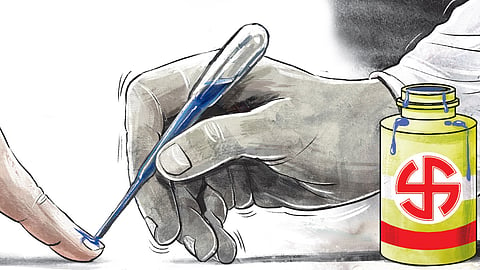

NEW DELHI: The 22nd Law Commission is likely to submit the final report on the feasibility of holding simultaneous elections to the Lok Sabha, state assemblies and local bodies, to the Union law ministry before the announcement of the Lok Sabha poll schedule, according to sources in the ministry. The Election Commission of India is expected to announce the poll dates by mid-March.
The Commission, headed by Justice Rituraj Awasthi, has recommended several amendments to the Constitution to facilitate a full-fledged rollout of simultaneous polls by 2029. Along with amendments to the Representation of the People Act, 1951, the panel may suggest a new chapter in the Constitution on holding simultaneous elections and the creation of a common electoral roll.
It was learnt that the high-level committee led by former President Ram Nath Kovind has approved most of the suggestions and is also in favour of simultaneous elections across the country.
Sources said that the law panel may recommend introducing an additional chapter, Part XV-A, through a constitutional amendment. Currently, Part XV of the Constitution deals with elections. The new chapter will deal with issues related to “synchronised elections”, “sustainability of simultaneous elections” and “common electoral roll” for the three-tier simultaneous polls.
The panel may suggest that in case a government falls due to a no-confidence vote or if there is a hung House, a “unity government” can be explored with representatives from various political parties. If the unity government formula fails, the commission may suggest holding fresh elections for the remainder of the term of the House. The panel may also propose a constitutional amendment for a common voter list.
The commission’s recommendations are in tune with the 21st Law Commission report, which said that simultaneous polls would save public money, but were not possible within the existing framework of the Constitution.
The 21st Law Commission has suggested that in case of a hung Parliament or assembly, then the President or Governor should install a government that will enjoy the support of the House, giving an opportunity to the largest party along with their pre-poll or post-poll alliances. Still, if no government is formed, the President may call an all-party meet. If the above options fail, mid-term polls should be called, the report said.